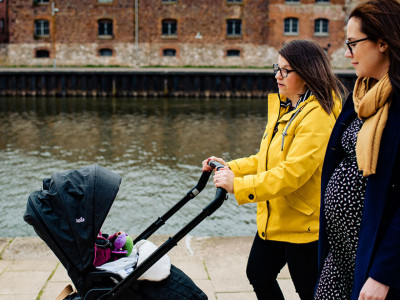- Home
- Anxiety
- Depression
- Emotional Eating
- Living with a long term health condition - Our Talking Health team
- Loneliness
- Menopause
- Mindfulness
- Obsessive compulsive disorder (OCD)
- Panic Attacks
- Phobias
- Pregnancy & Parenthood
- Prolonged Grief (Grieving)
- PTSD
- Sleep Difficulties
- Stress
- Veterans mental health
- Needs We Can and Cannot Meet
- Cognitive Behavioural Therapy (CBT)
- Eye Movement Desensitisation & Reprocessing (EMDR)
- Employment Support
- Counselling for Depression
- Online Self-help
- Mindfulness
- Wellbeing Workshops
- Join the team
- What to expect at your first appointment
- Testimonials
- Talking Health team
- Learn about mental health
- FAQs
- Mental Health Resources
- Blog
- Video Appointments
- Supporting someone through TALKWORKS: A guide for carers and loved ones
- Your feedback
- Making contact if you are deaf
- I need help now
Access support from TALKWORKS
Self-refer to TALKWORKSAccess support from TALKWORKS
Self-refer-
What we can help with
- Anxiety
- Depression
- Emotional Eating
- Living with a long term health condition - Our Talking Health team
- Loneliness
- Menopause
- Mindfulness
- Obsessive compulsive disorder (OCD)
- Panic Attacks
- Phobias
- Pregnancy & Parenthood
- Prolonged Grief (Grieving)
- PTSD
- Sleep Difficulties
- Stress
- Veterans mental health
Access support from TALKWORKS
Self-refer to TALKWORKS - How We Can Help You
- About Us
- Useful Resources
- Get in touch
- Self-refer
Restoring the mind: Exploring positive mood and self-control in the mindfulness graduates workshop
Clare from our mindfulness team has written a blog reflecting on delivering our TALKWORKS mindfulness graduates workshop and how it can help us to be more aware of ourselves and the world around us.
“One of the great privileges of my role has been delivering graduate workshops to those who have previously participated on a Mindfulness Based Stress Reduction or Mindfulness Based Cognitive therapy program. These groups of experienced meditators are a pleasure to work with and join with open minds, curiosity and a heartfelt approach to practice.
“The theme of this workshop allowed me to be able to make links with wider psychological research - specifically, the expectancy-based approach to self-control and restoration proposed by Egan, Clarkson, and Hirt (2015).
“The central idea of the workshop was that cultivating a positive mood isn't just about feeling good - it can actively restore our capacity for self-control. According to Egan and colleagues, self-control is not a fixed resource that gets depleted like a battery. Rather, our belief in the availability of personal resources is influenced by our expectations and emotional state. A positive mood signals to the brain that resources are available, thereby restoring self-regulatory capacity.
“When we are in a positive emotional state, we not only feel more energized but also become more cognitively flexible and resilient. Supporting this, Hirt (2008) found that positive moods enhance creativity and broaden thinking patterns. Other research has shown that positive affect leads to better integration of information, improved health outcomes, and reduced stress. Counter to this a traditional mindfulness approach emphasises paying attention in the present moment, non judgementally to things as they are (Jon Kabat Zinn) so this was a little different and it was careful to be clear that the intention was to induce positive mood and if this didn’t arise that it was preferable to sit with whatever came up rather than force the issue.
“The mindfulness graduates workshop combines meditation with experiential learning and some brief teaching. The mindfulness exercise was designed to foster a positive mood through sensory awareness. Participants were invited to bring a pleasant experience to mind (anything from eating a blueberry to seeing a sunset to being with a loved one) then by tuning in to the five senses during past positive experiences. By working at the sensory level such as, savoring the texture of a soft blanket, imagining deeply the ambient sounds, or the scents like the . Each sense was engaged slowly and deliberately, encouraging participants to find joy, peace or calm. The participants were reminded that mood was not to be forced, rather the invitation was to set an intention, to cultivate a positive mood by bringing to mind a previous positive experience.
“The longer practice offered for this session was a much more traditional walking meditation. This involved slowly and attentively walking in silence, focusing on the physical sensation of each step with minimal prompts. Walking meditation allowed for a peaceful reset of the nervous system while maintaining movement, and some participants find this more accessible than sitting still. This form of mindful movement reinforced the idea that restoration doesn’t always require complete stillness—it can also emerge from gentle engagement with the world.
“Meditation can take many forms from the traditional to the deliberate cultivation of positive mood can lead to greater emotional regulation and self-awareness. Positive emotion is not merely the absence of stress or negativity—it is a proactive resource. As research from caregiver and infant neurobiology confirms, the care giver needs to help the child regulate negative affect and provide experiences of positive affect. When we feel good, we believe we can do more, and that belief is powerful. As Egan, Clarkson, and Hirt (2015) suggest, it’s our expectations about our resources—not just the resources themselves—that drive whether we feel restored or depleted.
“The workshop concluded with a group reflection and excellent questions were brought. A mindfulness practice can be much more than a temporary retreat from stress—it is an invitation to shift our mindset. By actively cultivating positive moods, we might not just feel better; we may become more capable, creative, and resilient. In a world where burnout is common and rest often feels indulgent, this workshop offered a scientifically grounded and deeply human reminder: joy itself can be a form of strength.”
How can I join the mindfulness graduates workshop?
In order to join our mindfulness graduates workshop, you must have completed the 8 week mindfulness based cognitive behavioural therapy (MBCT) course. The dates and times for our mindfulness graduates workshop can be found on our workshops page of our website. To book your place, please call the team on 0300 555 3344 (our phone lines are open Monday to Friday from 09:00am – 4:45pm).
Related Posts

Understanding prolonged, complicated or traumatic grief
Posted by Sarah Goff on 7 August, 2025

Prioritising perinatal mental health: Meet our champions
Posted by Victoria Wa on 30 June, 2025

